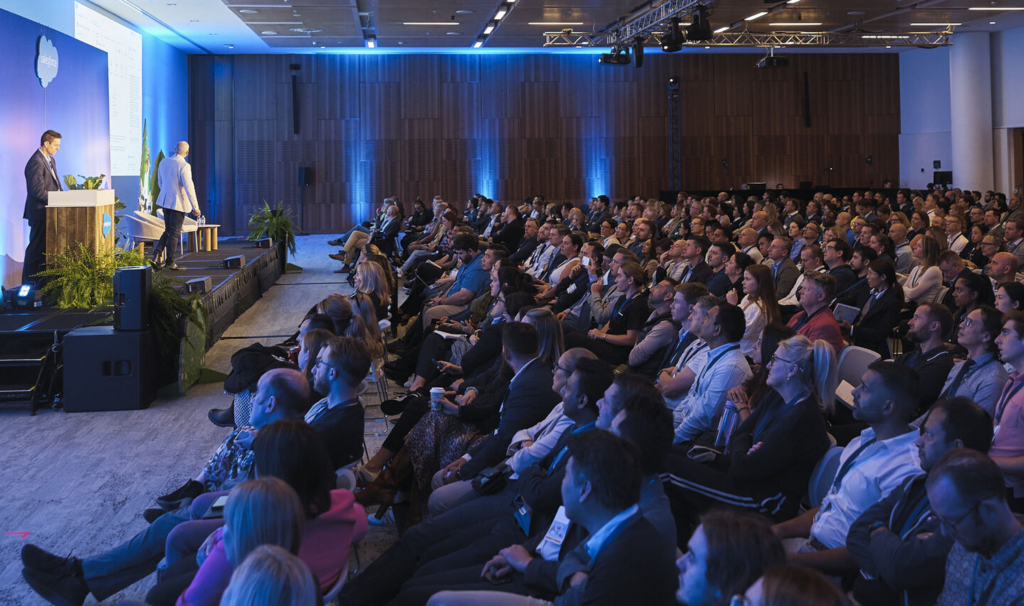It’s been more than a year since Australia and New Zealand first began responding to the COVID-19 pandemic.
In that time, there’s been enormous challenges, but there’s also been inspiring examples of leaders – many of them women – stepping up during a critical moment in history.
There’s also been some important revelations. Arguably, one of those is that the vast majority of individuals are doing their best and looking out for one another, but they’re sometimes operating within larger systems that are flawed or overdue for a revamp. Simplus values, along with this year’s International Women’s Day theme, Choose to Challenge, compel us to ask: if we want to build a more equal future, how can we challenge and improve broader environments?
It’s an important time to ask that question because there’s evidence that the pandemic’s effects might be eroding gains in gender equality. According to an analysis of data from the Australian Bureau of Statistics, Victoria has seen a 7.1% decline in the number of women working since March 2020.1
In the US, a McKinsey analysis warned that companies are supporting employee wellbeing but fewer are rethinking the norms or expectations that may no longer be realistic for parents or caregivers, no matter their gender. As part of that same analysis, McKinsey found that senior-level women are 1.5 times more likely than senior-level men to consider downshifting their role or leaving the workforce because of COVID-19. Almost three in four cite burnout as a main reason.2
No single person or company can change these trends on their own, but a good starting point for systemic change are often the organisations and businesses that make up smaller parts of these systems. And the cultures and values of those organisations tend to be central to creating environments where individuals can thrive.
So what does that look like at Simplus? Here’s what three of our leaders had to say.
Q: How can the tech industry keep moving forward and create more inclusive workplaces?
Alyssia Tennant, National Sales and Delivery Director: Personally, this period of time has taught me that I can achieve more happiness in both worlds and more balance through working at home, being accessible to my family and without impacting our company.
I believe the benefits of flexibility and working from home have been a revelation for most in the IT industry, and that the flexibility of working from home will become the new normal – complete with ‘Zoom bombings’ from four-year-olds. And that’s ok, it makes us human.
Julie Kellaway, Senior Project Manager: I agree, especially with the ‘Zoom bombings’, and I think these sorts of practices are making inclusive workplaces more common. There’s a general understanding that all employees have commitments outside of work. Continuing to recognise the need for flexibility will go a long way to ensuring all employees are able to manage their work/life balance.
Danielle Ozolins, Director of Marketing, Business Development and Alliances: Alyssia and Julie are spot-on – I think flexibility will be a major factor for making progress. Throughout COVID we’ve seen many women’s familial responsibilities increase. I’ve experienced this first-hand, being the parent working from home full-time.
More broadly, though, organisations will need to take a holistic look at their culture. Poor company culture tends to be a big reason why many women leave tech, or any industry for that matter. Inclusive workplaces will depend on a broader culture in which both women and men feel encouraged and supported.
Q: How is Simplus fostering an inclusive workplace? Has it impacted your own career?
Julie: Simplus has a great mix of women and men who have been hired because of their talent in their respective field. With an ANZ Leadership team that’s 60% women, there’s solid representation of women and many to seek out as mentors or role models.
That’s a big reason why I have never worried about being a woman in a traditionally male dominated IT industry. Simplus provides all employees with the same opportunities, pay levels and benefits – we’re rewarded for contribution and delivery.
Danielle: The representation Julie mentioned is critical, and I think Simplus has been able to achieve it because of our core values, one of the key reasons I joined Simplus. They encourage us to look after one another and take creative approaches to problems. As a result, both genders are supported equally from the top down.
This is one of the reasons I have never thought of our company as divided between men and women, just equals – my work family.
Alyssia: We work in an innovative industry, our minds bustling with ideas on growth and expansion for our company and customers’ business. We need everyone to feel they can share those ideas and thoughts often, voluntarily, unsolicited and confidently.
We’re always looking to cultivate an environment that encourages this mindset, and I agree with Danielle that those efforts are most obvious in our culture and values. And it really is a top-down effort – the Simplus leadership team leads with empathy, globally and locally. This culture reverberates throughout our organisation and is the foundation of our ‘stewardship’ value, which places our people at the centre of everything we do.
As for how it affects my own career, I’m grateful and privileged to be working with confident, strong, innovative and talented women in Simplus. Thank you to all the ladies at Simplus, for everything you do for each other, our organisation and our customers.
1 The McKell Institute (2020). The Impact of COVID-19 on Women and Work in Victoria. Available at: mckellinstitute.org.au
2 McKinsey (2020). Women in the workplace 2020. Available at: mckinsey.com





